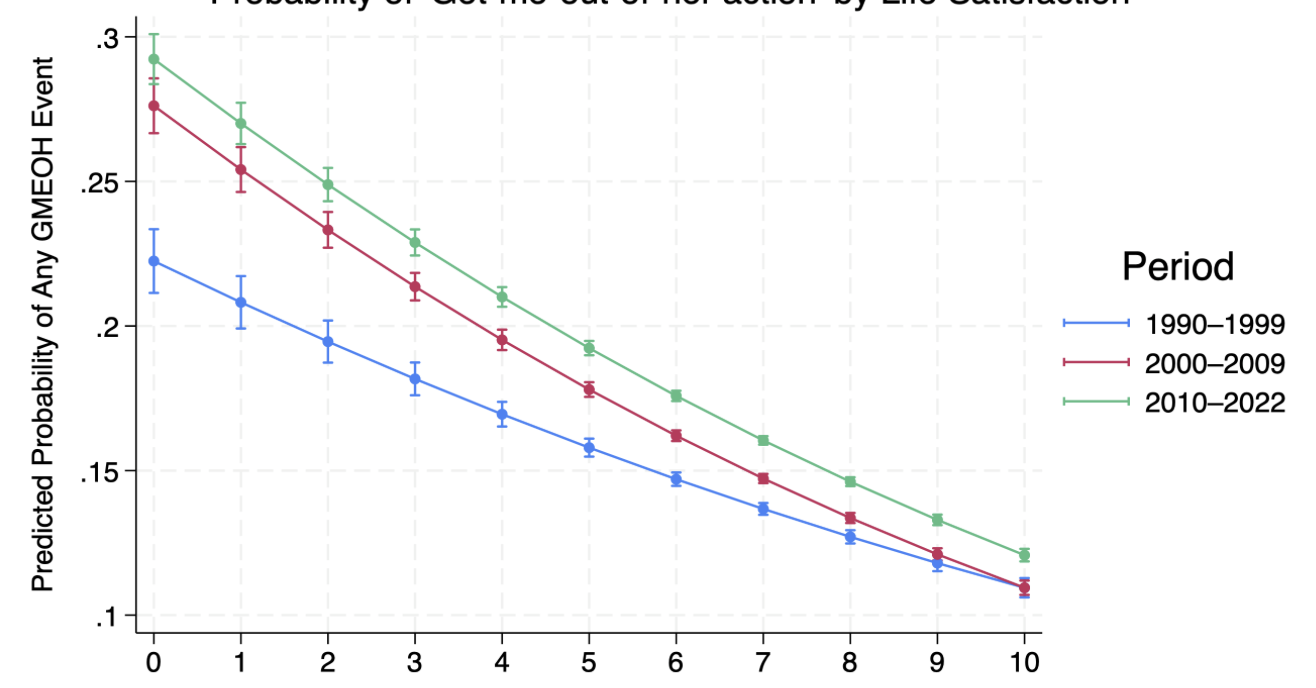I've volunteered to lead a short discussion group at my local EA gathering about a more personal approach to EA, namely how to maintain motivation and sense of purpose while trying to live an effective life. Does anybody have any suggestions for readings that we could base the discussion around?
6
Reactions
7 Answers sorted by
A large fraction of "Minding Our Way" is about this: http://mindingourway.com/
This is a very important question and it is great that you are considering it. I have a few suggestions...
1. Insights and practices from the world of cognitive behavioral therapy can be quite applicable to maintaining motivation and a sense of purpose. I'd suggest the Feeling Good Podcast by David Burns (he also has several books but the Podcast is more recent and very accessible).
2. Humans aren't rational beings and to that end, understanding the heuristics and cognitive biases we regularly operate under can be instructive and provide some useful ideas for how to leverage these biases to foster a greater sense of purpose and motivation. https://en.wikipedia.org/wiki/List_of_cognitive_biases
3. The book Drive by Daniel Pink and The Power of Habit both have some useful information relevant to maintaining a sense of motivation.
4. I've found one's mental and physical state has a large influence over their level of motivation. It can be easier to approach the issue of motivation in a less straight forward path. Improving your mental and physical state will naturally improve your ability to maintain motivation. So instead of asking "how can I be motivated" ask "how can I put myself in a state where motivation is more likely".
80,000 hours has "The Motivation Hacker" in their career guide: https://www.amazon.com/The-Motivation-Hacker-Nick-Winter-ebook/dp/B00C8N4FNK. I've been reading it and it's a) easy to read and b) makes sense. Can't personally vouch for results.
Drive by Daniel Pink gives a reasonable overview of motivation generally.
My quick thought is to spend time with projects & people you care about and find interesting.
http://www.paulgraham.com/determination.html
http://www.paulgraham.com/before.html
Real problems are interesting, and I am self-indulgent in the sense that I always want to work on interesting things, even if no one else cares about them (in fact, especially if no one else cares about them), and find it very hard to make myself work on boring things, even if they're supposed to be important.
My life is full of case after case where I worked on something just because it seemed interesting, and it turned out later to be useful in some worldly way. Y Combinator itself was something I only did because it seemed interesting. So I seem to have some sort of internal compass that helps me out. But I don't know what other people have in their heads. Maybe if I think more about this I can come up with heuristics for recognizing genuinely interesting problems, but for the moment the best I can offer is the hopelessly question-begging advice that if you have a taste for genuinely interesting problems, indulging it energetically is the best way to prepare yourself for a startup. And indeed, probably also the best way to live.
- The motivational hacker is great quick read, recommended by 80000 hours guide. Also The Willpower Instinct



This is a very important question and it is great that you are considering it. I have a few suggestions...
1. Insights and practices from the world of cognitive behavioral therapy can be quite applicable to maintaining motivation and a sense of purpose. I'd suggest the Feeling Good Podcast by David Burns (he also has several books but the Podcast is more recent and very accessible).
2. Humans aren't rational beings and to that end, understanding the heuristics and cognitive biases we regularly operate under can be instructive and provide some useful ideas for how to leverage these biases to foster a greater sense of purpose and motivation. https://en.wikipedia.org/wiki/List_of_cognitive_biases
3. The book Drive by Daniel Pink and The Power of Habit both have some useful information relevant to maintaining a sense of motivation.
4. I've found one's mental and physical state has a large influence over their level of motivation. It can be easier to approach the issue of motivation in a less straight forward path. Improving your mental and physical state will naturally improve your ability to maintain motivation. So instead of asking "how can I be motivated" ask "how can I put myself in a state where motivation is more likely".